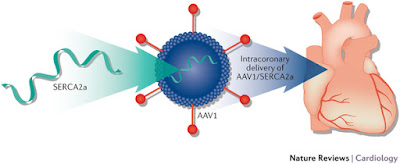Larix International is a group of ranking publishers and organizer’s for scientific conferences around the globe nesting well-known Doctors, Engineers, Scientists, and Industrialists. Larix is a self-functioning, independent organization wholly focused on arranging conferences in multi-disciplines of research on various science fields. The conferences are administered by global influential scientists and scientific excellence. We are even open for the upcoming scientists and scholars, who are in need of a platform to give their voice a much needed larger volume.
WORLD CONGRESS ON CARDIOLOGY AND CRITICAL CARE (World Cardiology Congress 2019) is going to be organized in the beautiful city of Singapore on July 25-26, 2019 at Holiday Inn Atrium, primarily focusing on the theme “Novel insights in cardiology”.
Cardiology is a medical specialty and a branch of internal medicine concerned with disorders of the heart. It deals with the diagnosis and treatment of such conditions as congenital heart defects, coronary artery disease, electrophysiology, heart failure, and valvular heart disease. Subspecialties of the cardiology field include cardiac electrophysiology, echocardiography, interventional cardiology, and nuclear cardiology. There is a range of disorders of the cardiovascular system that are treated and studied under the field of cardiology. Among them is an acute coronary syndrome, which encompasses the broad range of myocardial infarction symptoms. Angina pectoris, atherosclerosis, coronary heart disease, and restenosis are other common disorders. Broader categories of disorders in the field of cardiology include cardiac arrest; disorders of the myocardium, or the muscle of the heart, which include varieties of cardiomyopathy; disorders of the pericardium, or the outer lining of the heart, which include types of pericarditis; disorders of the heart valves, including the aortic valve, the mitral valve, the pulmonary valve and the tricuspid valve; congenital heart defects, which range from atrial septal defect to ventricular septal defect; diseases of the blood vessels, or vascular diseases, which includes aneurysm, deep vein thrombosis, varicose veins, vasculitis and diseases of other blood vessels.
DISCUSSIONS
Atherosclerosis, Arrhythmia, Heart stroke, Pediatric Cardiology, Vascular Biology, Obesity and Heart, Cardiac Imaging, Echocardiography, Cardiac Transplantation, Pediatric Critical Care, Cardiac Intensive Care Unit, Cardiac Regeneration, Cardiac Surgery, Cardiology – Future Medicine, Trans-aortic valve replacement, Nuclear Cardiology.
ATTENDEES AND AUDIENCE
Cardiologists; Cardiac Surgeons; University Professors; Various Societies and their members; Institutes-Medical Schools Students; Research Scholars; Business Entrepreneurs; Pharmaceutical representatives, Medical Device Manufacturers.
Join us:
· To Build networking Opportunities.
· You’re Knowledge Base.
· Expand Your Resources.
· Meet Experts & Influencers Face to Face.
· Learning In a New Space.
· Break Out of Your Comfort Zone.
· New Tips & Tactics.
· Greater Focus.
· The Serendipity of the Random Workshop.










